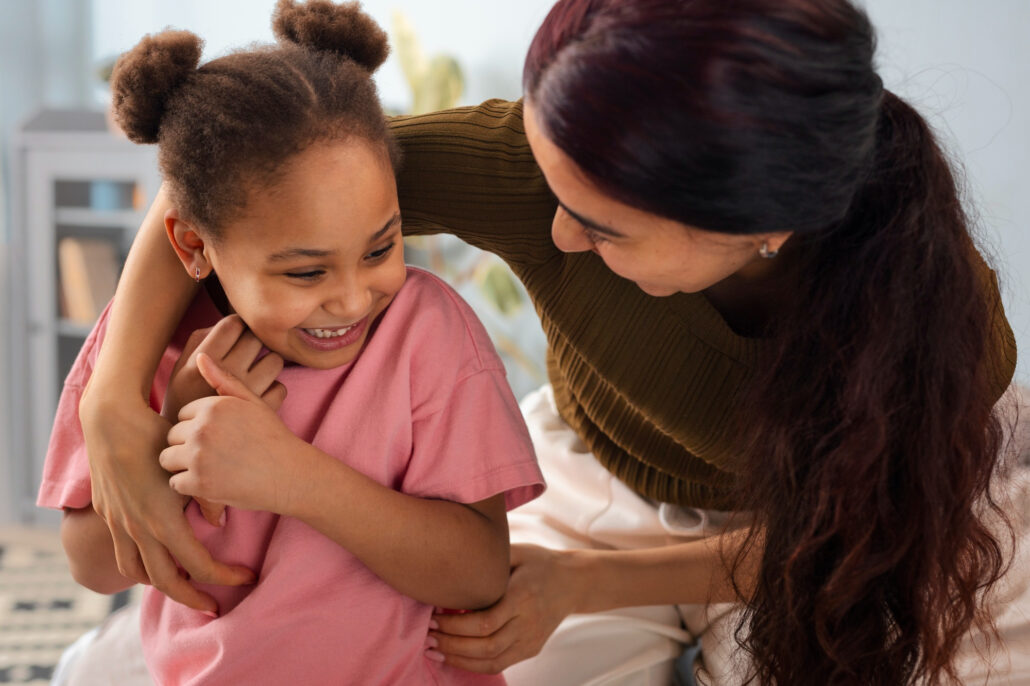Pediatric Atopic Dermatitis Research Study
Researchers at Boston University are partnering with caregivers of children with atopic dermatitis to evaluate how treatment with crisaborole can help. Join our compensated study today!

Fast Facts
mild to moderate atopic dermatitis
child 3 months - 11 years & adult caregiver
both fluent in english (as age appropriate)
Compensation Provided
Conducted in greater boston area
Study Background
Our researchers are looking for ways to improve itch and night-time scratch in children with atopic dermatitis (AD). If you are caring for a child aged 3 months – 11 years with AD, you and your child may qualify for this study.
We will measure improvements in night-time itch & scratch, as well as the child’s sleep, the caregiver’s sleep, AD symptoms, and overall quality of life after treatment with crisaborole ointment.
Your participation in this study may help researchers improve treatment approaches for pediatric AD. Further research today and join our compensated study!

Study Background
Our researchers are looking for ways to improve itch and night-time scratch in children with atopic dermatitis (AD). If you are caring for a child aged 3 months – 11 years with AD, you and your child may qualify for this study.
We will measure improvements in night-time itch & scratch, as well as the child’s sleep, the caregiver’s sleep, AD symptoms, and overall quality of life after treatment with crisaborole ointment.
Your participation in this study may help researchers improve treatment approaches for pediatric AD. Further research today and join our compensated study!
Additional Information
You and your child may qualify for this study if you meet the following criteria.
Key criteria for children:
- 3 months to 11 years old
- Written informed consent from parent/guardian
- Fluent in English (as age appropriate)
- Clinical diagnosis of mild to moderate atopic dermatitis between 5%-40% body surface area
- No clinically significant medical disorder, condition, disease, or infection that would interfere with participation
- No systemic corticosteroids or immunosuppressive agents in the past 28 days
- Not using topical AD treatment in the past 7 days, except places where crisaborole cannot be applied (face within 1 or 2 fingers away from the mouth and hands/fingers)
- No current or past treatment regimen with crisaborole
- No allergy to polyurethane resin, skin nickel allergy, silicone, and/or adhesives
- No sleep-related disorders
- No cardiac pacemakers, electronic pumps or any other implanted medical devices
Key criteria for caregivers:
- Primary caregiver of the child, 18-75 years old
- Able to understand & comply with study procedures and give informed consent
- Fluent in English
- No reported diagnosis of atopic dermatitis
- Agrees to refrain from applying diaper rash creams, lotions, ointments, powders, etc. where AD lesions are present, unless AD lesions are present where crisaborole cannot be applied
- No clinically significant medical disorder, condition, or disease that would interfere with participation
- No excessive alcohol consumption
- Not pregnant
- Not a current shift worker
- No allergy to polyurethane resin, skin nickel allergy, silicone, and/or adhesives
The study will last for about 21 days. It will consist of five visits to the laboratory, wearing watch-like devices for 3 weeks continuously throughout the study, and applying the ointment to your child’s affected areas twice a day for two weeks.
- Visit 1: a screening for eligibility in our laboratory
- One week of both you and your child wearing the study devices at home. Devices will be optional for children who have active AD on the wrist, with a minimum of at least one wrist device needed for enrollment.
- Visit 2: a second laboratory visit seven days after Visit 1. After this visit, you and your child will wear the devices at home continuously. You will also apply the ointment to your child’s affected areas twice a day.
- Visit 3: a third laboratory visit the next day after Visit 2.
- Visit 4: a fourth laboratory visit 6 days after Visit 3
- Visit 5: a final laboratory visit 7 days after Visit 4 to return the devices and complete assessments.
You may also come in for an unscheduled visit as needed (i.e., if you run out of ointment, etc.).




